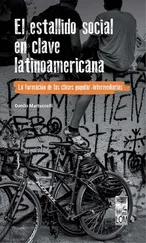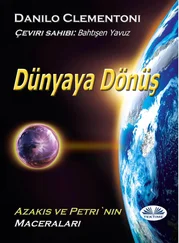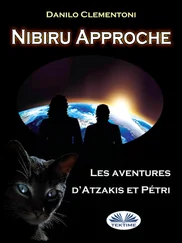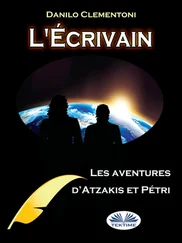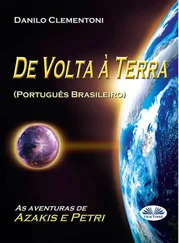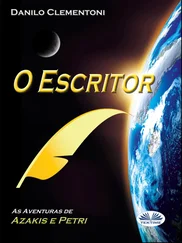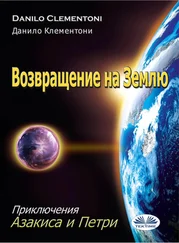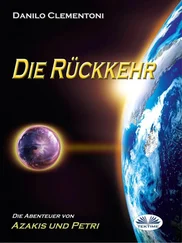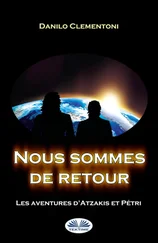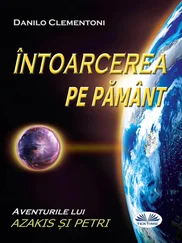Danilo Kiš - Psalm 44
Здесь есть возможность читать онлайн «Danilo Kiš - Psalm 44» весь текст электронной книги совершенно бесплатно (целиком полную версию без сокращений). В некоторых случаях можно слушать аудио, скачать через торрент в формате fb2 и присутствует краткое содержание. Год выпуска: 2012, Издательство: Dalkey Archive Press, Жанр: Современная проза, на английском языке. Описание произведения, (предисловие) а так же отзывы посетителей доступны на портале библиотеки ЛибКат.
- Название:Psalm 44
- Автор:
- Издательство:Dalkey Archive Press
- Жанр:
- Год:2012
- ISBN:нет данных
- Рейтинг книги:4 / 5. Голосов: 1
-
Избранное:Добавить в избранное
- Отзывы:
-
Ваша оценка:
- 80
- 1
- 2
- 3
- 4
- 5
Psalm 44: краткое содержание, описание и аннотация
Предлагаем к чтению аннотацию, описание, краткое содержание или предисловие (зависит от того, что написал сам автор книги «Psalm 44»). Если вы не нашли необходимую информацию о книге — напишите в комментариях, мы постараемся отыскать её.
Psalm 44 — читать онлайн бесплатно полную книгу (весь текст) целиком
Ниже представлен текст книги, разбитый по страницам. Система сохранения места последней прочитанной страницы, позволяет с удобством читать онлайн бесплатно книгу «Psalm 44», без необходимости каждый раз заново искать на чём Вы остановились. Поставьте закладку, и сможете в любой момент перейти на страницу, на которой закончили чтение.
Интервал:
Закладка:
“Enough, Solomon, I beg you,” and then, as he stared into space; “Stop, Solomon. Don’t go any further with this,” and then Marija spoke and was amazed at hearing her own voice in this way:
“I saw it too,” and then she wanted to explain to Aunt Lela what it had been like. She remembered: out of the crowd that had been driven into the courtyard of the municipal administration building, a man had singled out a large-breasted girl with freckles right away and ordered her to come with him for an “extra inspection,” as he put it, and then a third person turned up, apparently the girl’s father, and said that he would go with them.
“I guess you can hold the candle for us,” the first man said, kicking the other in the stomach. The girl’s father then collapsed to his knees, and so two men in civilian uniforms ran up and knocked him into the snow with their clubs. One of them stood with his foot on the father’s neck while the other twisted the prone man’s moustache around his fingers and then with a single jerk ripped it off his face and then blood spurted across the snow; the father bellowed and tried to free his neck from the boot but then the first man leaned on his neck with his whole weight; then the second one pulled out a short bayonet that he carried on the belt around his heavy civilian coat barely reaching down to his hips and he sliced off the man’s nose. He threw the bloody leftover out in front of the crowd: “Let that be a warning. Don’t stick your noses into everything,” he said. The one who had grabbed the girl had already dragged her over to the steps from which a heavy machine gun was aimed at the crowd, and they could still see the girl resisting, clutching at the snow, and then, naked and exhausted, she collapsed, seemingly unconscious, and then, while the man removed the belt from around his coat, she let out a scream and dashed back toward the crowd, but the man swung his belt and looped it over her head: “So we’re still not ready to calm down, eh?” he said, “Haven’t come to terms with your fate yet, have you?”: with one hand he tightened the belt around her throat while with the other he twisted her arm and he pinned her bare legs with his boot. She tried to free her throat from the slipknot but the man drew the belt tighter and she dropped into the snow and after that he turned her over onto her back and with great difficulty forced apart her knees as when someone uses his bare fingernails to open up a shell;—and afterward: she remembered how the man got to his feet and tightened his belt again around his short gray coat and how he knelt down next to the girl and whipped out his bayonet, and then the thing Marija didn’t see but understood nevertheless: how the man squeezed the girl’s cheeks with his left hand until her jaws spread apart and then with two strokes sliced open her mouth on both sides all the way to her ears and then how he pounded on her gold molars with the butt of his gun until he could shake them out into his palm: her head gaped open like some sort of freakish man-eating fish; Marija grasped what she had not seen: for the earrings, no bayonet had been required: when tissue freezes, it becomes brittle and cracks easily.
But she told Aunt Lela none of this. She simply repeated what she had said earlier: “I saw all of it myself, Aunt Lela. I remember everything: from somewhere on the other bank the wind carried across the melody of that waltz: traaaa-la-la-la, tra-la-la-la.”
Then she felt a warm wetness coming from the diaper she had wrapped around her child; it penetrated to her skin and delivered her back into the present, which in the following instant would again turn into the past or the future, and she said:
“Is there time for me to do it?” And without waiting for the answer: “For me to get Jan ready.”
And even before Žana could say anything at all in response, Marija began unwrapping the wet cloth from the child.
Chapter 10
Then she had to wrap the baby back up in the diaper that she had dried out on herself. And she tore off a small piece from Polja’s sheet and wiped the moisture from her skin. She bundled the child up in a blanket and wrapped it around several times with a narrow strip of linen. Once again she sat down in the straw and leaned her back against the cold barracks wall. The distant thundering of cannon and the rustling of straw from Žana’s bed were still all she could hear. And she thought: I should count . Thirty was half a minute. Sixty — one minute. Five times sixty. . How much was five times sixty? Doesn’t matter. Maks will be giving the signal in a few moments. The baby is still asleep. She felt the warmth of his soft lips and his hot, slippery tongue on her nipple. In the gloom she could almost make out the elemental mechanism of her own heart pumping the white foamy liquid to the rhythm of her blood into that warm little ring tight around her nipple like a knot. And even before Žana touched her, although she could hear no sound, Marija sensed her proximity. “Now they’re going to short out the lights,” Žana said. Then Marija let Žana help her get to her feet, although it seemed to her that she was only interested in taking the child. “No,” she said, “I can do that myself,” but Marija nonetheless felt faint when she stood up and leaned the weight of her whole body, though without letting go of the child, onto Žana: “I think I can do it myself.” They had already reached the door when she heard Žana’s barely audible whisper: “Take off your shoes,” and then: “give me Jan,” and she groped in the darkness for Žana’s hands reaching out for her and for the child, and after that she handed Žana the bundle and pulled back her hands as soon as she felt the full weight of the child slide out of her embrace. Her shoulder propped against the wall, she removed one of her shoes and then shifted her weight onto her other leg and took off the other. Without letting go of the heavy boots in her left hand, she stuck out her right through the darkness toward Žana and touched the rough blanket and under it the bound strips of half-wet linen. Then she felt Žana’s hand searching for something in the gloom and right after that she felt the weight of the boots vanish as well.
Then Marija noticed a cool draft blowing in from the corridor when the door opened slightly. The hinges on the door creaked a bit like when a board pops from cold in the dead of night. She felt Žana’s hand on hers. Žana moved forward. Along the wall. In one hand Žana was holding Marija’s boots, while her own, tied together, she carried draped across her other arm at the elbow: the same arm with which she felt Marija’s hand draped over the child like a mooring line.
They moved noiselessly, just barely touching the wall with their shoulders. There was no gap to be seen in the thick rubber of the night. This because the electricity had been cut. Otherwise a light-bulb would be burning at the end of the hallway. Marija felt Žana touching the rough surface of the unseen wall with her elbow and stepping forward utterly without sound, like a cat, while she despite her concentration and effort dragged her bare feet over the cold concrete and wet boards, trudging along with uncertain steps, with a cautious gait, like a frightened woman and not like a cat at all. But then a moment came in which when she had succeeded in recognizing herself, and Žana, and the child in Žana’s grasp — when she had unwillingly become both a participant and an observer (as when a writer objectifies his or her personal experience even before approaching it as a writer): she suddenly saw herself, from far enough away that one glance took in herself and Žana and the baby but also from nearby enough for her to remain if only for that moment a close but objective observer — seeing how their shadows gleamed white upon the dark nocturnal backdrop: ghosts passing through a cemetery. The mute presence of other rooms, invisible and inaudible, contributed to this feeling like graves yawning open on either side of the corridor, hollowed out of the thick dark wall of the night. Straw rustled somewhere. As if all the women in the rooms were corpses. Polja’s corpse. They were all Polja. Then she sensed the almost physical presence of death and of dark green bruises on the flesh of the night. And all at once, from somewhere in front of them, the scent of the wind and the night that was entering through some window left slightly open, a window invisible in the blackness, or through a crack in the glass or a wall, and Marija felt the damp, ice-cold wind waft in on the back of a new quiet, a quiet that had a different taste and smell and specific weight from the dense quiet of the graveyard that she had left behind: at this moment she was taking in the heavy-milky freshness of a child’s mouth and the sourish warm smell of urine and moreover the crisp current of the night and the clouds and the unseen stars, scents that penetrated like soft light into her agitated senses made oversensitive by the headlong circulation of her blood. They turned abruptly to the right and she thought it might be possible for Žana to have gotten confused but she didn’t say anything because she had more faith at this moment in Žana’s resourcefulness than in her own senses. Then Žana’s hand stopped squeezing and Marija was left standing motionless, as if rooted to the spot. Without a compass. Blinking. But a faint scratching sound let her know: Žana had picked up a board. “Psss,” Žana said in a nearly inaudible hiss. Then she once more squeezed Marija’s upper arm and Marija translated this for herself: “Stop.” Then Žana pulled her downward and she fell to her knees and bent her head. She understood: the searchlight was already playing its silent scale of uniform notes — do-re-mi-faso-la-ti-do — above their heads, and Marija could see now on the wall opposite how through the gap as on white keys its fingers danced and how that resonant light drew nearer and nearer growing into an intense and anxious fortissimo that took her breath away. She lay there, clinging to the wall, between Žana and the baby, right at the very edge of the opening that had been made in the floor of the building. Dark square stain just like an open grave. Two or three boards thrown across it. Everything below was swallowed up immediately and dissolved in the gloom that was becoming even thicker. “Give me the child after I let myself down,” Žana said and that sentence reverberated in Marija like an echo, Give me the child after I let myself down! Give me the child after I let myself down! Then she heard the boards rub against each other as Žana displaced them and then she was trembling and she heard the light thump when Žana touched bottom. Then Marija felt her way to the rim of the opening and leaned over the invisible emptiness. From below—Žana’s breathing. She picked up her child, leaned over the breathing, and immediately felt the weight that had weighed down her hands vanishing abruptly as if she had dropped it into the abyss. “Be careful that you don’t knock down the boards,” Žana said from underneath, from that marvelously confident “underneath” that was giving her the firm footing of damp earth beneath her feet while Marija was still treading the slippery and unsteady boards onstage. Propped up on both elbows and with her body rocking gently, she hesitated for a moment. She could feel that every one of her movements now carried momentous significance for Jan and for Žana as well as for herself. Even for Jakob. Yes, even for him. Dangling over the opening that separated one world and time, one chapter of her history and fate from another, she felt again, without being entirely conscious of it, the denseness of these moments through which passed a nearly tangible current — the past, the present, and the future intersecting, a compact three-way crossroads of time — the dim and dark recorded past cutting across narrow bands of bright new moments and enormous distances sewn with bones and graves (not merely the ones that remained there just behind their turned backs but also all of the graves that she bore in her memory and in her blood, and even all the ones of the unknown people in her family album); the present, swaying slightly in the instant of its birth, issuing forth from the ruptures in the past and, having reached the light of day, heading off to submerge once more in the unknown obscurity of the future: a future that always stands as though on firm footing above the swaying minutes of the present, but which is nonetheless uncertain and unmeasured, dependent upon numerous factors that slice into and blow apart its frames of reference. Then she thought Polja , as if someone were reading aloud the inscription on a grave in which the past had been interred, and then she thought, as if some vague ray from the future into which she was letting herself drop had blinded her, Did Žana get the child out of the way? — and she flinched the way you’d flinch if you began walking up a stairway you’d only imagined: the ground was just a few centimeters beneath her feet after all. If she stretched out her toes she could touch the ground with her now-dangling legs. But she was afraid that her untied shoes would drop off before she reached the bottom. And then she thought of trying to soften her impact. So she pressed her feet together and held them parallel to the floor along some imaginary horizontal line. The bottom seemed like a deep chasm to her, into which she was supposed to hurl herself with acrobatic skill, or near enough. As though she were jumping straight into the heart of the future. Leaping over the present.
Читать дальшеИнтервал:
Закладка:
Похожие книги на «Psalm 44»
Представляем Вашему вниманию похожие книги на «Psalm 44» списком для выбора. Мы отобрали схожую по названию и смыслу литературу в надежде предоставить читателям больше вариантов отыскать новые, интересные, ещё непрочитанные произведения.
Обсуждение, отзывы о книге «Psalm 44» и просто собственные мнения читателей. Оставьте ваши комментарии, напишите, что Вы думаете о произведении, его смысле или главных героях. Укажите что конкретно понравилось, а что нет, и почему Вы так считаете.


